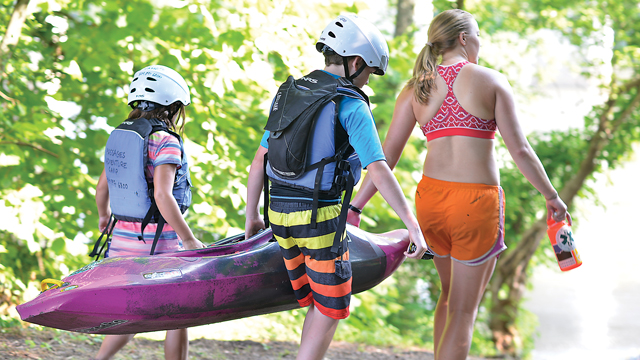I vividly remember picking up my then 10-year-old daughter, Bethany, after her initial week at camp. While I envisioned her jumping into my arms, she shot me a friendly smile and a wave before returning to her new friends. In the moment I was disheartened, but more than a dozen years have proven that experience to be an important first step in her journey towards independence.
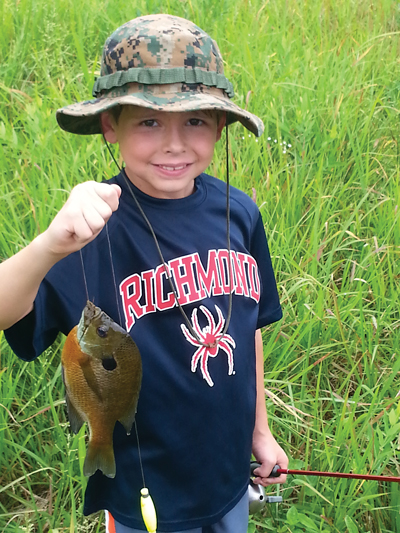 Anna Muller, director of Westview on the James in Goochland, says as many as half of campers each year are away from home for the first time. “It is often their first time choosing their own food, their own schedule, and even making their beds by themselves,” says Muller. “But these new choices, small as they are, instill independence that is invaluable, and parents often tell us they do not pick up the same kid they dropped off.”
Anna Muller, director of Westview on the James in Goochland, says as many as half of campers each year are away from home for the first time. “It is often their first time choosing their own food, their own schedule, and even making their beds by themselves,” says Muller. “But these new choices, small as they are, instill independence that is invaluable, and parents often tell us they do not pick up the same kid they dropped off.”
As for parents who are uncertain how to go about sending a first timer to camp, Muller says they can start by being a positive advocate. “Instead of saying how much the family and even the dog is going to miss them until they feel bad about leaving,” she says, “encourage the kids by emphasizing they are going to have the best experience and you cannot wait to hear about it.”
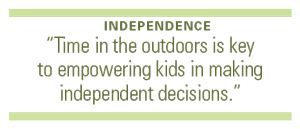 And what about the homesickness that is so prevalent among beginning campers? “It absolutely happens,” says Muller, “but we know the best way to keep it at bay is by keeping kids engaged.” Homesick campers tend to wane between minutes of downtime or bedtime when kids realize they are out of their normal routine. “Two days in is the key,” she says, adding that by day three, they are settled into a routine. The parent’s job is simply to give them a happy send-off and then not give in to worry.
And what about the homesickness that is so prevalent among beginning campers? “It absolutely happens,” says Muller, “but we know the best way to keep it at bay is by keeping kids engaged.” Homesick campers tend to wane between minutes of downtime or bedtime when kids realize they are out of their normal routine. “Two days in is the key,” she says, adding that by day three, they are settled into a routine. The parent’s job is simply to give them a happy send-off and then not give in to worry.
While reluctant kids and homesick campers are only two obstacles, parents also have to address their own hesitations. “I try not to let my own fears stand between my kids and independence,” says Richmond mom of three Hollie Gilman. “I knew there were things I wanted them to do that might make me nervous, yet I was also certain they needed to develop independence.” Gilman found the right fit in North Carolina’s Outreach America Camp, whose motto is “Born Wild, Set Free.” As the motto implies, the rugged setting encourages outdoor adventure. What’s more, the camp is screen-free and, except for emergencies, communication-free. “As a mom, I want to protect them and to control things, but I know I won’t always be able to,” says Gilman, who only learned after the fact, following last year’s session, that hunting and eating a snake was one unexpected experience her sons encountered.
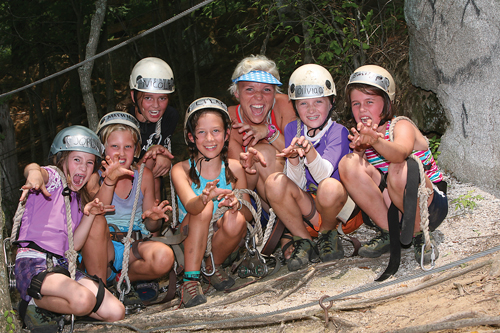
“One reason for the newfound independence at camp is the risk-taking inherent in outdoor play,” says Richard Louv, author of the bestseller, Last Child in the Woods, and the much anticipated Vitamin N, due out next month. Louv emphasizes that once most children are given the opportunity to experience nature, even in simple ways, engagement and interaction follow quite naturally. “Time in the outdoors is key to empowering kids in making independent decisions.” Research has repeatedly shown that free, independent play outside allows kids to explore and find answers on
their own.
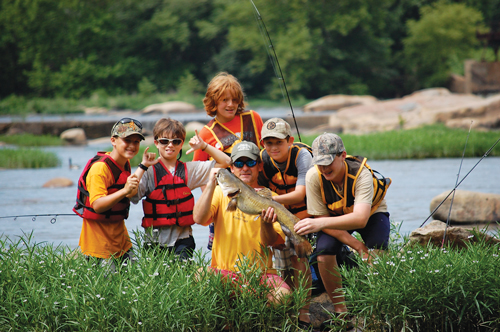
Kevin Tobin, co-owner of Passages Adventure Camp, agrees. He says children know the difference between genuine self-confidence and false self-esteem. “Kids don’t get enough credit for knowing what’s up,” he says. “The confidence that they’ve gained from rappelling down the wall or kayaking through that first break is authentic confidence, the kind that comes not from applying compliments, but applying yourself to something that looks a little scary and coming through to the other side.” Tobin adds that campers are always eager to show off their new skills on parent night. What’s more, their parents are amazed at what kids have accomplished.
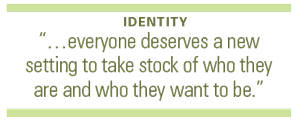 “Campers who are scared of the zip line when they come to camp often go home having conquered their fear of heights,” says Tobin, adding it also takes a great deal of courage for parents to send their kids off to do things at which they, themselves, have no experience. “It is an honor and a privilege to lead these kids to new adventures, and we take it very seriously. We are all about getting the kids outside and having fun.”
“Campers who are scared of the zip line when they come to camp often go home having conquered their fear of heights,” says Tobin, adding it also takes a great deal of courage for parents to send their kids off to do things at which they, themselves, have no experience. “It is an honor and a privilege to lead these kids to new adventures, and we take it very seriously. We are all about getting the kids outside and having fun.”
Parents whose kids may be hesitant to try extreme or unfamiliar sports should remember that confidence comes in all shapes and sizes, as do camp activities.
Once kids begin to learn independence, a newfound identity often follows. In his book, Homesick and Happy, author Michael Thompson, PhD, highlights the experience of one 14-year-old boy, David McDonald, who discovers his talent not for riskier ventures such as swimming or horseback riding, but to his surprise, glass blowing, at camp. “It changed the way I felt about myself forever,” said McDonald.
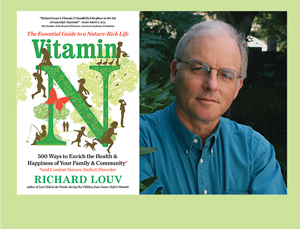
The camp setting provides a kind of traction that enables kids to reinvent themselves or simply be themselves. “We place kids with different staff every day,” says Tobin, “so if you’re the quiet kid on Monday, you don’t have to be the quiet kid on Tuesday.” Tobin adds that school doesn’t often offer those kinds of organic breaks that allow kids to find themselves, and camp is just the right venue. “I firmly believe that everyone at different times in life deserves a new setting to take stock of who they are and who they want to be.” Camp provides the perfect atmosphere for kids to try new skills, explore new opportunities, and really let down their guard in a brand new background.
But with the countless programs available that foster individualism, why camp? “Because I am a product of camp,” says former camper Allie Harvick, who found North Carolina’s Camp Hollymont on the Internet as a girl. “I had seen a movie of an all-girls camp in the mountains when I was ten and immediately knew that was what I wanted. That summer, my parents made a bold move and put me on a plane to North Carolina to attend. After two weeks, I was hooked,” says Harvick, who returned each summer and eventually joined
as support staff
for a time.
“In fact,” she continues, “when I later had the opportunity to go to South Africa and study abroad, I kept looking back at my 10-year-old self, reminding myself if I conquered fear of the unknown then, I could conquer it now.” Harvick adds that her time in South Africa turned out to be one of the most enriching and defining times of her life. “But I’m not sure I could have done it without the camp experience. You can’t take a big leap until you take a small step.”
Anna Muller agrees. “At six years old, I went for a week, then a month, and by high school I was working all summer as a counselor, which led me to my career,” she says. Inspired by her camp experience as she grew up, Muller
now holds a bachelor’s degree in outdoor recreation and a graduate degree in outdoor education. “Camp absolutely shaped me
to be who I am.”
While these types of camps compete with other programs not directly related to nature, such as tech or academic, outdoor themed camps provide families with more of what is so rarely offered elsewhere: direct experiences in nature. “The direct relationship between nature experience and healthy child development cannot be underestimated,” says Louv, who first coined the phrase “nature deficit disorder” in 2005. “NDD is not a medical diagnosis, but a metaphor to describe what many of us believe are the human costs of alienation from nature, as suggested by recent research.” Among them: diminished use of the senses; higher rates of physical and emotional illnesses; child and adult obesity; vitamin D deficiency; and other maladies.
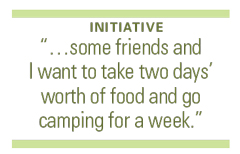 With the surge of technology of the last decade, today’s parents face more challenges than ever when it comes to getting kids outside. “When was the last time you saw eight bikes in someone’s front yard?” asks Tobin, adding that not only connecting kids to each other, but also to nature itself, are the goals of Passages. “We want kids to connect to themselves, with each other, and to love and respect nature, namely The Mighty James [River]. And to have the time of their lives.”
With the surge of technology of the last decade, today’s parents face more challenges than ever when it comes to getting kids outside. “When was the last time you saw eight bikes in someone’s front yard?” asks Tobin, adding that not only connecting kids to each other, but also to nature itself, are the goals of Passages. “We want kids to connect to themselves, with each other, and to love and respect nature, namely The Mighty James [River]. And to have the time of their lives.”
“Camp is that great exposure to nature, the outdoor elements. Every kid deserves the opportunity to experience and fall in love with the out of doors,” says Muller, adding that kids are not likely to protect something they have not experienced. “How can any kid ever learn to protect
and advocate for our national parks and other resources that we have, except to get out there in it?”
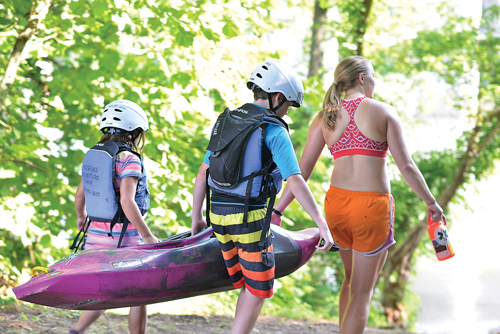
After teaching high school for thirteen years, Tee Clarkson founded Virginia Outside based on his best childhood memories. Clarkson agrees that while a love of nature comes naturally to many kids, the days of coming home from school and running around in the neighborhood until dark seem to have come and gone. “A lot of families may not know exactly how to get their kids out fishing or mountain biking, so we like to create those opportunities.” Consequently, kids are often awakened to a lifetime of inspiration. “Nurturing that component is something they can do for the rest of their lives.”
As much as I long to give my kids the kind of summers Clarkson is talking about – the seventies summers that I experienced – the season all too soon turns into a battleground over screen time. But recently, my 15-year-old son, Cory, said something that gave me the momentum I needed to make it happen. “This summer, some friends and I want to take two days’ worth of food and go camping for a week,” he announced. Seeing the puzzled look on my face, he elaborated. “We are going to catch the rest of our food supply.”
My son is a typical teenage boy. He loves Doritos and spends more time than I care to admit playing video games. The plans he and his friends made spoke volumes: Despite the invasion of screens in every form, it is just in a kid to crave outdoor adventures. And I love that he wants to catch his own food, to boot.
While it is certainly normal and healthy for parents to protect and provide for their children, going away to camp offers kids a passage, of sorts, into adulthood. “The goal of childhood is to grow up,” says Homesick author Thompson, “and one of the great failings of our society is that we don’t have a ceremony to mark the passage from childhood into adulthood.”
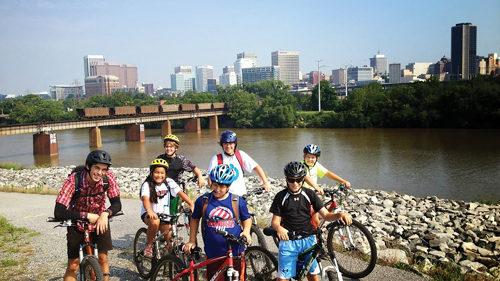
Independence, identity and initiative are all components of what camp offers. “A place to make mistakes and skin their knees; growth in a controlled environment,” says Harvick. “You can’t purchase that at a store.”
As the mom of ten, the time comes every few years for one of my children to fly. I feel like I have done my job when one of them moves forward confidently. “Doesn’t it make you sad when they are so eager to go?” their grandmother often asks me when another one leaves the nest. “No,” I tell her. “I would rather have them itching to go find their lives than shrinking back, afraid.”
From where I sit, summer camp is a safe, solid first step in the journey.
Seven Ways to Prepare Both of You for the Camp Experience
1. Give your child the gift of letting him or her go.
2. Prepare your child for homesickness.
3. Do not try to manage homesickness from a distance.
4. Do not make the “We’ll get you home if you’re unhappy” deal.
5. Help your child practice the skills they need before they leave.
6. Use letters, postcards, and other slower forms of communication.
7. Take a vacation from parenting. Have some fun and don’t feel guilty about it!
Source: Homesick and Happy by Michael Thompson, PhD
Photos courtesy: Virginia Outside, Passages Adventure Camp


